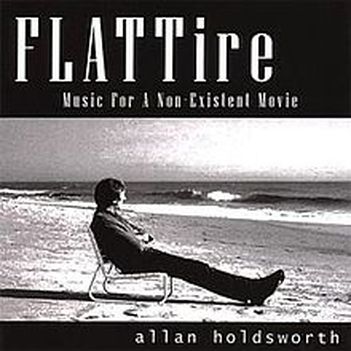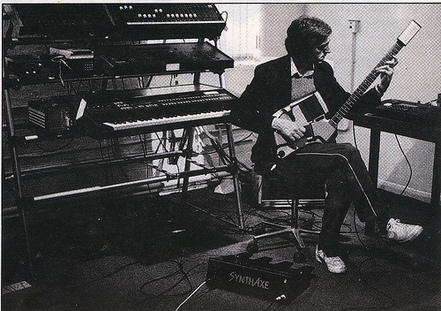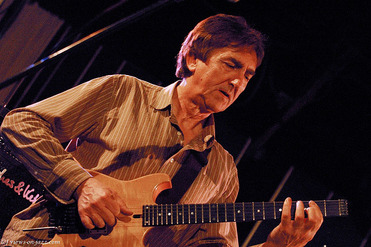
This album represents Holdsworth’s desire to write film scores. The question immediately rises as to what sort of film this might be. Given the knowledge that Holdsworth has revealed about his experiences and frame-of-mind during the writing, imagery begins to emerge during the hearing of this remarkable album.
In 2001, he “had gone through a difficult divorce and was experiencing a lot of pain and feeling very lost and introspective.” That pain is revealed in the anguished introduction entitled “The Duplicate Man (Intro).” It is the only guitar part on the album and the solo guitar may very well reflect his emotions at being left alone with just a guitar. He had sold most of his studio equipment and much of his synthesizer collection and other instruments.
From the beginning, therefore, we are brought into his world of loneliness and deprivation. For those who have followed Allan Holdsworth for many years, that revelation alone is enough to create an aura of pain and isolation.
The album is certainly not without its jazzier moments when Dave Carpenter joins on acoustic bass for “Eeny Meeny” and “Bo Peep.” Plus, the virtuosity of Holdsworth’s musicianship and the single-mindedness of his compositions are evident at every turn.
 Allan Holdsworth with the Synthaxe
Allan Holdsworth with the Synthaxe While guitar fans, Synthaxe fans, Jazz fans and Holdsworth fans will find everything to celebrate on this album, it is the “de profundis clamo ad te” of the album that makes the greatest impact. It is emotional and it is revealing.
“Please Hold On” is a lament that begs the question as to whom the entreaty is intended. Is it to the departed spouse or is Allan begging this of himself? It is painful in the most personal of ways.
“Curves” brings the listener along with a nice groove and then breaks away into almost disjointed reverie before returning to the introspective groove through the rest of the piece. No piece, however, is more reflective than “So Long” which follows immediately after.

“Don’t You Know” finishes the album in the most heart-breaking of ways. Big chords and swells release the listener from the experience but a few runs before the end break the melancholy, if only for a moment.
After hearing this remarkable recording, one is left wondering if the title is a double-meaning of Flat Tire as in “rendered unable to proceed” or more like “resentment on full display” as in FLAT IRE. Both ways work.
MoonJune Records has done what two previous record companies failed to do. Only slightly remastered, the recording has been “sonically enhanced” to create the experience that Allan Holdsworth intended in the first place.
The MoonJune Records 2013 re-issue of this splendid album can be purchased here.
 RSS Feed
RSS Feed
